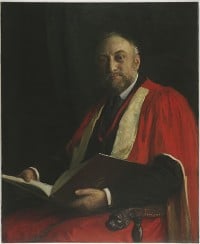
By Hamish Johnston
Can you name 10 blunders that have held back the progress of modern astronomy? Avi Loeb of Harvard University can, and he lists them in an essay entitled “On the benefits of promoting diversity of ideas”, which is posted on the arXiv preprint server.
Loeb argues that a common flaw of astronomers is to believe that they know the truth even when data are scarce. This, he argues, “occasionally leads to major blunders by which the scientific community makes the wrong strategic decision in its research plans, causing unnecessary delays in finding the truth”.
The first example he gives is the 1909 pronouncement by Edward Pickering, director of the Harvard College Observatory, that telescopes had reached their optimal size and that there was no point trying to make them any bigger.
Other blunders include ignoring spectrographic evidence that the Sun is made mostly of hydrogen because astronomers in the 1920s believed that the Sun and Earth must share the same composition.
Loeb’s article got me thinking about blunders that have held back other branches of physics. I suppose a classic blunder in condensed-matter physics was the belief that freestanding sheets of graphene couldn’t exist.
Can you think of any blunders in your field of physics? Please share your thoughts by leaving a comment below.



